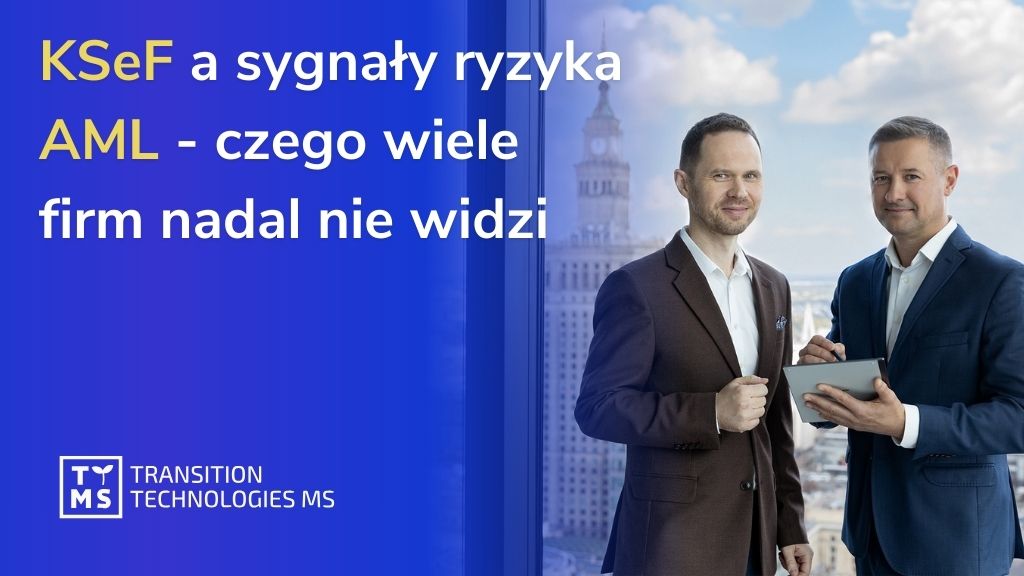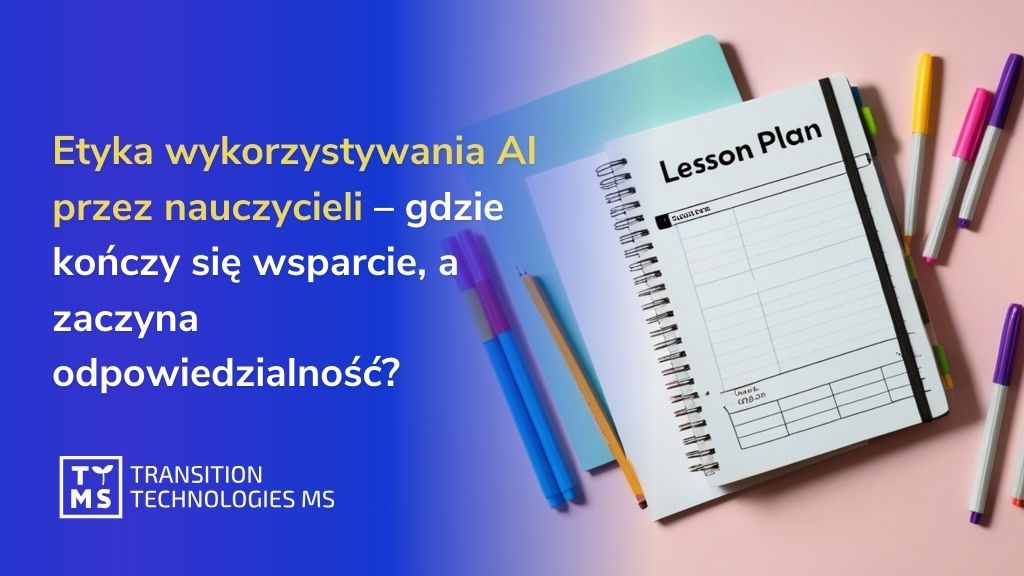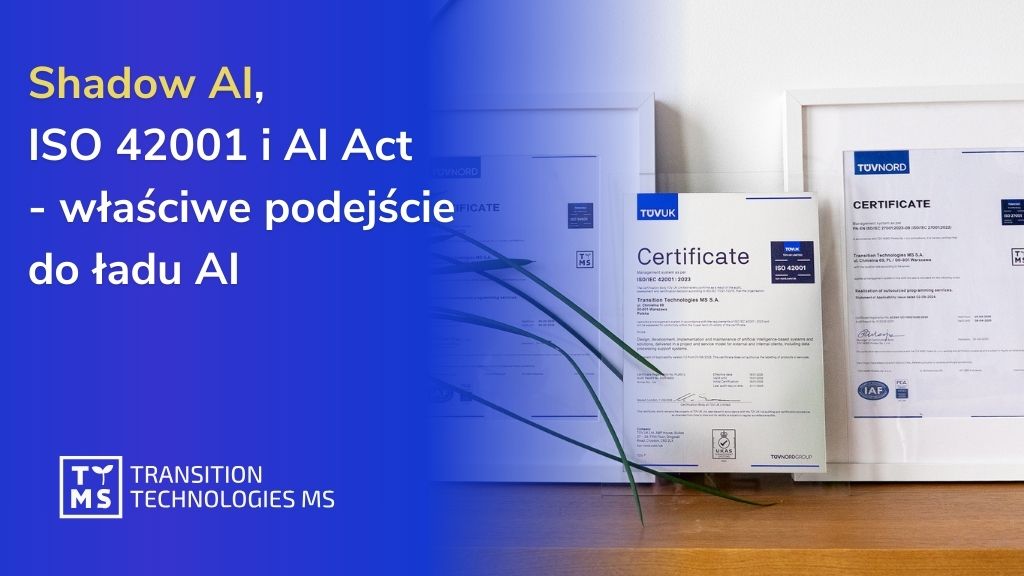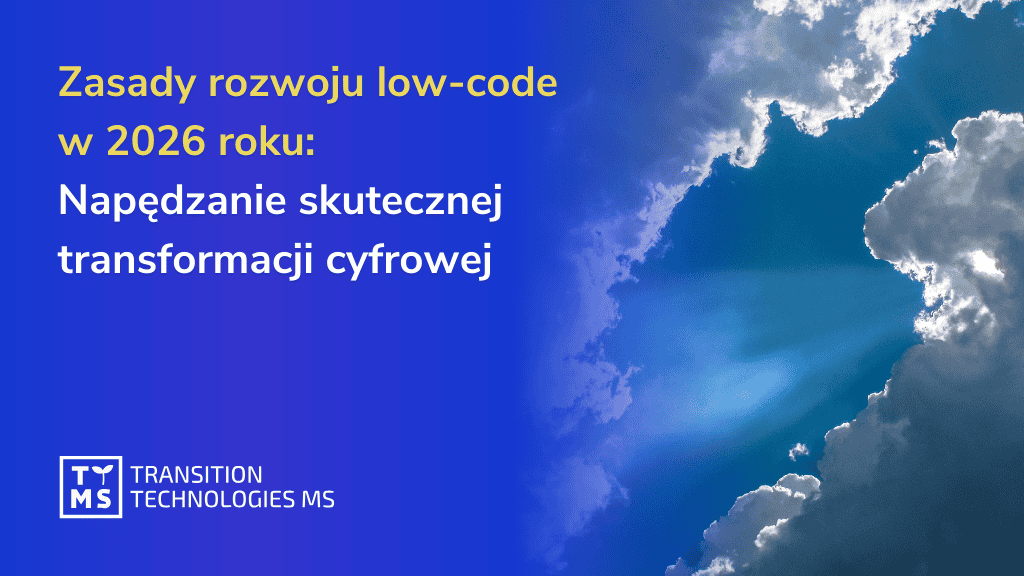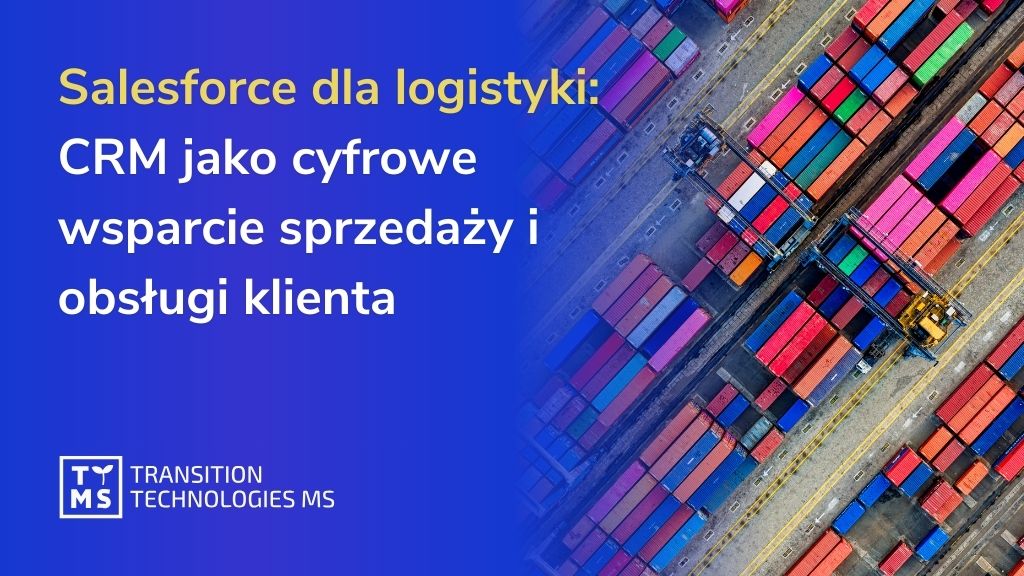Sektor obronny staje się coraz ważniejszym odbiorcą nowoczesnych rozwiązań IT, a rosnące wydatki na obronność otwierają nowe możliwości biznesowe dla branży technologicznej. Według danych Międzynarodowego Instytutu Studiów Strategicznych, wydatki na obronność w Europie wzrosły w 2024 roku o 11,7% (do poziomu 457 mld USD). Mimo atrakcyjności tego rynku, wejście firmy informatycznej w sektor zbrojeniowy napotyka na wyjątkowo wysokie bariery formalne, technologiczne i organizacyjne. Przykładem przedsiębiorstwa, które skutecznie pokonuje te przeszkody, jest Transition Technologies Managed Services (TTMS) – polski software house, który w ostatnich latach dynamicznie rozwija działalność w segmencie obronnym. TTMS w krótkim czasie podwoiło portfel zamówień w sektorze obronnym, konsekwentnie poszerzając ofertę dla wojska i instytucji rządowych.

Sebastian Sokołowski, CEO TTMS
Jak przyznaje prezes TTMS Sebastian Sokołowski w rozmowie z ISBtech.pl: „W ostatnim czasie szczególnie mocno skupiamy się na rozwoju działalności dla sektora obronnego, dzięki czemu podwoiliśmy portfel zleceń w tym obszarze. Rosnące zapotrzebowanie stwarza wiele możliwości, ale bycie preferowanym partnerem na tym rynku jest dużym wyzwaniem dla wielu firm IT ze względu na wysoką barierę wejścia i wymagane, niszowe kompetencje”. Poniżej omawiamy główne wyzwania wejścia do branży obronnej oraz sposoby, w jakie TTMS się do nich przygotowuje i buduje pozycję zaufanego dostawcy.
Bariery formalne i regulacyjne
Jedną z największych przeszkód dla firm IT chcących realizować projekty wojskowe są wymagania formalne. Dostęp do postępowań w sektorze obronnym często uwarunkowany jest posiadaniem odpowiednich koncesji, certyfikatów i zezwoleń. W Polsce działalność polegająca na wytwarzaniu lub obrocie produktami o przeznaczeniu wojskowym (w tym technologiami i oprogramowaniem dla wojska) wymaga koncesji Ministerstwa Spraw Wewnętrznych i Administracji. TTMS posiada taką koncesję – w 2024 roku spółka uzyskała odnowienie zezwolenia na przetwarzanie środków o podwójnym zastosowaniu (cywilnym i wojskowym) na maksymalny okres 50 lat. Dzięki temu firma może legalnie ubiegać się o wyspecjalizowane zlecenia w obszarze nowoczesnych technologii obronnych.
Kolejnym aspektem formalnym jest dostęp do informacji niejawnych. Realizacja projektów dla wojska zazwyczaj wiąże się z koniecznością przetwarzania danych objętych klauzulami tajności. Wymaga to uzyskania przez firmę i jej pracowników odpowiednich poświadczeń bezpieczeństwa (tzw. świadectw bezpieczeństwa przemysłowego oraz osobowych). TTMS i jego konsultanci posiadają poświadczenia bezpieczeństwa na poziomie NATO/ESA/EU Secret, co oznacza spełnienie rygorystycznych wymogów dotyczących ochrony informacji poufnych. Tego typu certyfikacje są warunkiem koniecznym, by móc brać udział w projektach wojskowych zarówno na szczeblu krajowym, jak i międzynarodowym. Niewiele firm IT dysponuje takimi uprawnieniami – TTMS podkreśla, że jest jedną z nielicznych polskich spółek informatycznych mających tak szerokie kompetencje w tworzeniu systemów dla wojska, odpowiednie koncesje oraz specjalistów dopuszczonych do pracy przy projektach obronnych. Formalne przygotowanie w postaci zezwoleń i certyfikatów daje firmie przepustkę do udziału w przetargach zastrzeżonych dla podmiotów spełniających wysokie kryteria bezpieczeństwa.
Wymagania technologiczne i normy bezpieczeństwa
Bariery technologiczne w sektorze obronnym wynikają z wysokich wymagań stawianych systemom używanym przez wojsko. Rozwiązania IT dla armii muszą cechować się niezawodnością, skalowalnością oraz odpornością na ekstremalne warunki i cyberzagrożenia. Standardy bezpieczeństwa i jakości są tu wyśrubowane – często przewyższają te znane z projektów komercyjnych. Systemy dowodzenia, łączności i rozpoznania (klasy C2/C4ISR) muszą działać nieprzerwanie nawet w sytuacjach kryzysowych, zapewniając ciągłość operacji bojowych. Oznacza to konieczność spełnienia norm odporności systemów, np. na awarie sprzętu, utratę łączności czy ataki hakerskie. Dostawcy IT muszą wdrażać rygorystyczne protokoły cyberbezpieczeństwa, szyfrowania komunikacji oraz redundancji infrastruktury. Nieprzestrzeganie norm bezpieczeństwa, poufności i odporności eliminuje wykonawcę z rynku obronnego na wstępie.
Firmy wchodzące do tego sektora muszą więc zainwestować w niszowe kompetencje techniczne i specjalistyczną wiedzę domenową. Przykładowo, tworzenie oprogramowania dla wojskowości wymaga znajomości standardów NATO (np. formatów danych, protokołów zgodnych ze STANAG – porozumieniami standaryzacyjnymi NATO) oraz procedur bezpieczeństwa (np. AQAP – Allied Quality Assurance Publications, norm jakości dla dostawców NATO). Niezbędna jest także umiejętność integracji systemów informatycznych z sprzętem wojskowym (sensorami, efektorami, platformami bojowymi). TTMS wypracował te kompetencje poprzez wieloletnie doświadczenia swoich ekspertów zdobyte przy zaawansowanych projektach obronnych. Specjaliści TTMS doskonale rozumieją funkcjonowanie systemów dowodzenia i wsparcia bojowego na poziomie taktycznym, operacyjnym i strategicznym, co pozwala firmie realizować zarówno projekty czysto programistyczne, jak i te wymagające integracji oprogramowania z urządzeniami na polu walki.
Zgodność z normami bezpieczeństwa jest dla wykonawców IT absolutnym priorytetem. W praktyce oznacza to wdrażanie w projektach wojskowych surowych polityk bezpieczeństwa (zgodnych np. z ISO 27001 czy krajowymi przepisami o ochronie informacji niejawnych) oraz poddawanie systemów dodatkowym testom odporności. TTMS, działając w sektorze kosmicznym i zbrojeniowym, kładzie duży nacisk na zapewnienie jakości i bezpieczeństwa rozwijanych rozwiązań. Firma świadczy usługi Product Assurance i Quality Assurance według wymogów Europejskiej Agencji Kosmicznej – dbałość o każdy szczegół, która zwiększa prawdopodobieństwo powodzenia misji. Takie same rygorystyczne podejście jest stosowane w projektach obronnych, gdzie nie ma miejsca na błędy oprogramowania. Dodatkowo TTMS na bieżąco śledzi zmiany technologiczne na świecie i testuje nowe rozwiązania (np. w ramach NATO ACT Innovation Hub) zanim zaimplementuje je u klientów. Pozwala to oferować wojsku nowatorskie technologie (sztuczna inteligencja, big data, rozwiązania geoprzestrzenne) już sprawdzone pod kątem bezpieczeństwa i zgodności z normami.
Specyfika przetargów i cyklu zakupowego
Nawet dysponując wymaganymi certyfikatami i technologiami, firmy IT stają przed wyzwaniem organizacyjnym, jakim jest długi i złożony cykl zakupowy w sektorze rządowym i militarnym. Procedury przetargowe w obszarze publicznym są sformalizowane i często czasochłonne – od ogłoszenia zapotrzebowania, przez dialog techniczny, po wieloetapową ocenę ofert i wybór dostawcy może minąć wiele miesięcy, a nawet lat. W przypadku dużych programów zbrojeniowych proces ten bywa dodatkowo obciążony wymogami offsetowymi, uzgodnieniami międzyresortowymi czy zależnością od budżetu państwa. Dla firmy IT oznacza to konieczność długofalowego planowania sprzedaży i cierpliwego angażowania zasobów w przygotowanie ofert, które nie od razu przełożą się na przychód.
Procedury przetargowe w segmencie obronnym często wymagają spełnienia szeregu kryteriów formalnych, co faworyzuje podmioty doświadczone. Nowi gracze muszą wykazać się referencjami z podobnych realizacji, stabilną sytuacją finansową oraz zdolnością do zabezpieczenia ciągłości dostaw (np. gwarancją serwisową przez wiele lat). Często wymagane jest też posiadanie zespołu o określonych certyfikacjach lub gotowość do prowadzenia projektu w określonym czasie i miejscu. Dla wielu mniejszych firm IT barierą bywa już samo przygotowanie kompletnej oferty zgodnej z formalnymi wymogami przetargu wojskowego.
W praktyce skutecznym sposobem na wejście na ten rynek jest nawiązywanie partnerstw i udział w konsorcjach. Duże kontrakty obronne rzadko są realizowane przez pojedynczego wykonawcę – częściej przez konsorcjum łączące kompetencje wielu podmiotów (np. integratora systemów, dostawcy sprzętu i oprogramowania, firmy szkoleniowej). TTMS od początku swojej aktywności w segmencie zbrojeniowym stosuje taką strategię, łącząc siły z partnerami przy składaniu ofert. Spółka brała udział (samodzielnie lub w konsorcjach) w wielu postępowaniach przetargowych dla sektora obronnego, znajdujących się na różnych etapach rozstrzygnięć. Dzięki współpracy z siostrzanymi spółkami z Grupy Transition Technologies oraz wyspecjalizowanymi partnerami (np. BREVCO Services), TTMS może wspólnie oferować kompleksowe, złożone systemy skrojone pod wymagania wojska. Taka kooperacja zwiększa wiarygodność oferty w oczach zamawiającego i ułatwia spełnienie wygórowanych kryteriów (np. dostarczenie pełnego pakietu usług od analizy, przez implementację, po wieloletnie utrzymanie systemu).
Charakterystyczną cechą rynku obronnego jest także to, że projekty mają bardzo długi cykl życia. Po wygraniu kontraktu wykonawca często świadczy usługi serwisowe i rozwojowe przez wiele lat. Sebastian Sokołowski zauważa, że kontrakty wojskowe są z definicji długoterminowe – specjaliści angażowani są na lata, a wdrożeniu nowej technologii towarzyszy jej utrzymanie w okresie eksploatacji. TTMS przekonało się o tym, realizując kolejne wdrożenia: wiele systemów dostarczonych we wcześniejszych latach firma nadal rozwija i utrzymuje na rzecz zamawiających. Z jednej strony wydłuża to czas pełnej realizacji przychodów z projektu, z drugiej zaś buduje trwałą relację z klientem i stanowi barierę dla konkurencji (skoro TTMS opiekuje się danym systemem, to logicznym wyborem jest powierzenie mu kolejnych zadań z nim związanych).
Przygotowanie TTMS do wymagań sektora obronnego
Transition Technologies MS, chcąc sprostać powyższym wyzwaniom, podjęło szereg działań przygotowawczych, aby uwiarygodnić się w roli dostawcy dla wojska. Po pierwsze, spółka strategicznie wybrała segment obronny i kosmiczny jako obszary rozwoju – już w 2017 roku TTMS zaczęło rozwijać biznes w tych sektorach, świadomie inwestując w wymagane kompetencje. Firma pozyskała formalne uprawnienia (wspomnianą koncesję MSWiA oraz certyfikaty bezpieczeństwa), co otworzyło jej drogę do uczestnictwa w przetargach wojskowych. Równolegle zbudowano wewnętrzne struktury zdolne obsługiwać specyficzne projekty – wyodrębniono dedykowany pion Defence & Space skupiający konsultantów z doświadczeniem w branży obronnej. TTMS zatrudniło ekspertów posiadających osobiste poświadczenia bezpieczeństwa oraz znajomość realiów pracy dla instytucji rządowych i NATO. Firma opracowała również wewnętrzne procedury zapewniające zgodność z normami ochrony informacji (m.in. bezpieczne środowiska IT do projektów niejawnych, polityki dostępu oparte na zasadzie wiedzy koniecznej itp.).

Kolejnym elementem przygotowania było rozwijanie kompetencji technologicznych dopasowanych do potrzeb wojska. TTMS, korzystając z ponad 30-letniego doświadczenia całej Grupy Transition Technologies, przeniosło najlepsze praktyki inżynierskie na grunt projektów obronnych. Firma zdobyła know-how w obszarach kluczowych dla armii, takich jak systemy dowodzenia i kontroli, rozwiązania geoprzestrzenne, sztuczna inteligencja w analizie danych wywiadowczych czy cyberbezpieczeństwo. Przykładowo, TTMS rozwinęło kompetencje w zakresie wykrywania anomalii w cyberprzestrzeni i wsparcia dowódców w podejmowaniu decyzji obronnych – technologie te zastosowano w tworzonych przez spółkę prototypach systemów dla NATO. Istotną rolę odgrywa tu własny dział R&D oraz udział w inicjatywach typu Innovation Hub przy dowództwie NATO (ACT), co pozwala TTMS testować i doskonalić nowe rozwiązania we współpracy z wojskowymi ekspertami zanim trafią one do właściwych wdrożeń.
TTMS zadbało także o spełnienie formalnych wymagań proceduralnych poprzez gromadzenie niezbędnych referencji i budowanie historii projektów. Zanim firma zdobyła pierwsze samodzielne kontrakty, brała udział jako podwykonawca lub partner większych integratorów, co pozwoliło zdobyć doświadczenie referencyjne na wymagającym poligonie zamówień publicznych. Każdy zrealizowany projekt (np. wdrożenie systemu dla polskich Wojsk Lądowych lub współpraca przy rozwiązaniu dla NATO) zwiększał wiarygodność TTMS w oczach kolejnych klientów. Obecnie portfel TTMS w branży obronnej obejmuje ponad 10 kontraktów zrealizowanych dla wojska, co stawia firmę w gronie wykonawców z udokumentowanym doświadczeniem. Co ważne, TTMS konsekwentnie rozwija ofertę – nie poprzestaje na wąskiej specjalizacji, lecz oferuje szeroki wachlarz usług dostosowanych do potrzeb instytucji obronnych (od doradztwa i analiz, przez tworzenie oprogramowania bojowego, po długoterminowe wsparcie i utrzymanie systemów).
Kompetencje i doświadczenia TTMS w projektach obronnych
Dotychczasowe dokonania Transition Technologies MS pokazują, jak firma IT może skutecznie zaistnieć w sektorze obronnym. TTMS może pochwalić się realizacjami dla prestiżowych klientów międzynarodowych. Na szczeblu NATO spółka uczestniczy w projektach na rzecz NATO Allied Command Transformation (ACT). Przykładem jest kontrakt o wartości 0,9 mln euro na stworzenie nowego systemu terminologicznego dla NSO – platformy ułatwiającej tworzenie, zarządzanie i dystrybucję ujednoliconej terminologii wojskowej w ramach Sojuszu. TTMS, działając w konsorcjum, odpowiada za całościową implementację tego rozwiązania, które ma zapewnić wszystkim jednostkom NATO dostęp do jednakowego słownika pojęć i skrótów. Projekt ten jest jedenastym z kolei kontraktem TTMS w segmencie obronnym od początku działalności spółki. We wcześniejszych latach zespół zdobywał doświadczenie m.in. wdrażając systemy klasy C4ISR dla polskich sił zbrojnych (w obszarze obrony przeciwlotniczej, wsparcia dowodzenia i rozpoznania) oraz realizując projekty badawczo-rozwojowe związane z autonomicznymi platformami wojskowymi.
TTMS angażuje się również w projekty z zakresu cyberbezpieczeństwa i wywiadu elektronicznego. Dla struktur NATO firma opracowała np. innowacyjny system analizy informacji z przestrzeni publicznej – rozwiązanie oparte na sztucznej inteligencji, które skanuje otwarte źródła (Open Source Intelligence) w poszukiwaniu sygnałów mogących mieć znaczenie dla bezpieczeństwa, a następnie generuje raporty podsumowujące dla dowództwa. Jest to świetny przykład wykorzystania AI w komunikacji między systemami a człowiekiem dowódcą, zwiększający świadomość sytuacyjną dzięki automatycznej obróbce ogromnych ilości danych. Inny projekt, w którym TTMS brało udział, dotyczył stworzenia interfejsu komunikacyjnego między Siłami Zbrojnymi RP a systemami NATO – zapewniając kompatybilność i wymianę danych pomiędzy krajowymi a sojuszniczymi strukturami dowodzenia. Takie realizacje pokazują, że polska firma IT potrafi dostarczać rozwiązania na najwyższym światowym poziomie, wpisujące się w strategiczne programy obronne.
W sektorze kosmicznym TTMS również zaznacza swoją obecność, co komplementarnie wzmacnia kompetencje firmy w dziedzinach o najwyższych wymaganiach technicznych. Spółka wspiera projekty Europejskiej Agencji Kosmicznej (ESA) oraz Agencji UE ds. Programu Kosmicznego, świadcząc usługi doradcze z zakresu zapewniania jakości oprogramowania i bezpieczeństwa produktu. Praca przy misjach kosmicznych (gdzie niezawodność systemów jest krytyczna) przekłada się na know-how cenne także dla projektów militarnych. TTMS podkreśla synergię między sektorem obronnym a kosmicznym – w obu przypadkach wymagana jest najwyższa jakość, precyzja i bezpieczeństwo rozwiązań IT. Dzięki takiemu doświadczeniu firma potrafi sprostać nawet najbardziej wyśrubowanym wymaganiom stawianym przez instytucje rządowe.
Budowanie zaufania wobec instytucji z sektora obronnego
Ostatecznym czynnikiem decydującym o sukcesie firmy IT na rynku obronnym jest zaufanie, jakim obdarzą ją klienci – wojsko oraz agencje rządowe. Budowa zaufania w tej branży wymaga czasu i konsekwencji. TTMS od lat pracuje na reputację solidnego i bezpiecznego partnera. Każdy kolejny ukończony projekt wzmacnia pozycję spółki, pokazując, że potrafi ona dostarczyć wymagane rozwiązania zgodnie z założeniami i dochować tajemnicy. Dzięki posiadanym certyfikatom bezpieczeństwa oraz przestrzeganiu najwyższych standardów poufności, TTMS gwarantuje klientom, że powierzone dane i zadania pozostają pod właściwą ochroną. Ważnym elementem jest też ciągłość współpracy – fakt, że firma utrzymuje i rozwija systemy dla wojska przez lata, buduje relacje oparte na niezawodności i lojalności. Instytucje publiczne chętniej powierzą nowe zadania podmiotowi, który już się sprawdził i zna specyfikę ich działania.
Zaufanie wzmacnia również transparentność i wiarygodność biznesowa dostawcy. TTMS, jako część dużej grupy kapitałowej Transition Technologies, odznacza się stabilnością finansową i organizacyjną. Spółka przygotowuje się do debiutu giełdowego, co dodatkowo zwiększa jej wiarygodność – bycie notowanym na GPW oznacza poddanie się nadzorowi i raportowaniu, co dla wielu klientów (w tym sektora publicznego) jest oznaką dojrzałości firmy. Dodatkowo, obecność TTMS na międzynarodowych rynkach (Europa, Azja, Ameryka Płd.) oraz zdobyte kontrakty z NATO i ESA świadczą o uznaniu firmy na arenie międzynarodowej. Prezes TTMS wskazuje, że najnowsze technologie – od AI po cyberbezpieczeństwo – będą odgrywać kluczową rolę w obronności, a dalszy rozwój spółki w tym sektorze opierać się będzie na ścisłej współpracy z kluczowymi instytucjami międzynarodowymi, takimi jak NATO, ACT czy ESA. Tego typu partnerstwa są możliwe tylko wtedy, gdy instytucje te obdarzą firmę pełnym zaufaniem co do jej kompetencji i rzetelności.
Wnioski
Podsumowując, sektor obronny stanowi wymagający, lecz niezwykle perspektywiczny rynek dla firm IT. Wymaga on od dostawców spełnienia surowych kryteriów formalnych, wykazania się unikatowymi kompetencjami technologicznymi oraz odnalezienia się w złożonych realiach proceduralnych. Przykład Transition Technologies Managed Services pokazuje, że konsekwentna strategia inwestowania w specjalistyczne uprawnienia, wiedzę i relacje może przynieść sukces – firma ta z powodzeniem pokonuje bariery wejścia, podwajając portfel zamówień w obszarze obronności i zdobywając zlecenia niedostępne dla wielu konkurentów. Kluczem jest cierpliwość, najwyższa jakość usług oraz budowanie zaufania krok po kroku. Dzięki temu partnerstwo na linii przemysł-obronność może przynieść obustronne korzyści: armia zyskuje innowacyjne technologie zwiększające bezpieczeństwo kraju, a firma IT – stabilny rozwój w niszy o wysokiej wartości dodanej.
Dlaczego firmom informatycznym tak trudno jest wejść do sektora obronnego?
Sektor obronny narzuca surowe wymogi formalne (licencje, certyfikaty bezpieczeństwa), zaawansowane standardy technologiczne (odporność systemu, normy NATO) i złożone procedury zamówień publicznych. Zaufanie i długoterminowe referencje są również niezbędne do osiągnięcia sukcesu.
Czym jest poświadczenie bezpieczeństwa TAJNE NATO/ESA/UE?
Poświadczenie bezpieczeństwa TAJNE NATO/ESA/UE to oficjalne upoważnienie, które pozwala firmie i jej personelowi na dostęp i obsługę informacji niejawnych na poziomie „TAJNE” w międzynarodowych projektach dla organizacji takich jak NATO, Europejska Agencja Kosmiczna (ESA) lub UE. Odzwierciedla wysoki poziom zgodności z przepisami bezpieczeństwa i poufności.
Co oznacza C4ISR?
C4ISR oznacza Command, Control, Communications, Computers, Intelligence, Surveillance, and Reconnaissance. Odnosi się do zintegrowanych systemów, które pomagają siłom zbrojnym podejmować decyzje, komunikować się, analizować informacje wywiadowcze i monitorować pole bitwy. Jest to cyfrowy kręgosłup współczesnych operacji obronnych.
Jakie technologie TTMS oferuje sektorowi obronnemu?
TTMS zapewnia:
- systemy wspomagania decyzji dla dowództwa wojskowego,
- rozwiązania programowe zgodne ze standardami NATO,
- narzędzia do analizy danych oparte na sztucznej inteligencji,
- narzędzia interoperacyjności między siłami narodowymi a systemami NATO,
- wsparcie dla inicjatyw obronnych opartych na przestrzeni kosmicznej i satelitach.
Czym różni się proces zamówień publicznych na potrzeby wojska od procesu zamówień cywilnych?
Przetargi wojskowe są bardziej złożone i sformalizowane. Często wymagają specjalnych licencji, poświadczeń bezpieczeństwa, zatwierdzeń międzyresortowych i gwarancji długoterminowej konserwacji systemu. Proces ten zazwyczaj trwa dłużej i obejmuje bardziej rygorystyczne kryteria oceny.
